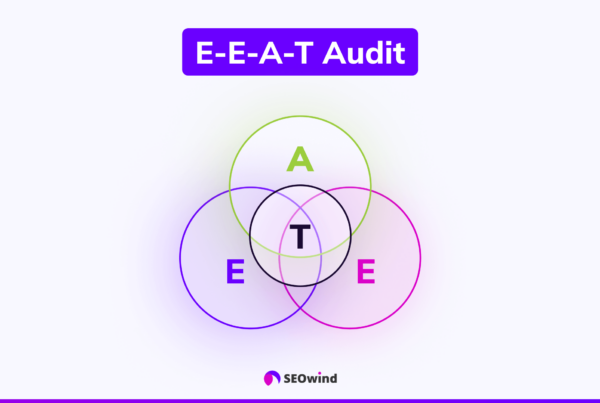Is content writing and copywriting the same? Both are essential components of a successful marketing and content strategy. Yet, they serve different purposes, require divergent skills, and demand distinctive approaches. Whether you’re embarking on a creative career or simply trying to choose the appropriate service for your brand promotion, let this article be your go-to guide in navigating the complex linguistic landscape that makes all the difference! Prepare yourself as we dive deep into unraveling the nuances that set apart the realms of content writing vs. copywriting.
What is Copywriting?

Copywriting is an art and science focused on creating persuasive written material to generate action or response from its targeted audience. This form of writing is primarily used to sell products, services, or ideas while instilling trust and fostering emotional connections with potential customers. In other words, copywriters work to craft compelling messages to persuade readers to take a specific course of action, such as purchasing, signing up for an email newsletter, or downloading an ebook.
Some common forms of copywriting include:
- Sales pages
- Product descriptions
- Email campaigns
- Advertisements (online and offline)
- Landing pages
- Promotional materials (brochures, flyers)
Successful copywriting often relies on understanding human psychology and tailoring messages toward consumer needs, desires, or pain points. A compelling piece of the marketing copy may evoke emotions like excitement, curiosity, or urgency to motivate its target audience towards swift decision-making processes.
However, good copy incorporates more than mere persuasion ─ ethical practices and accurate information dissemination are also essential elements in establishing credibility within competitive marketplaces.
Now that we’ve delved into the intricate world of what entails copywriting let’s traverse further along our journey by examining its close cousin yet markedly distinct counterpart: content writing.
What is Content Writing?
Content writing refers to creating informative and valuable material to engage audiences, build brand authority, enhance search engine visibility, and drive long-term organic traffic. It primarily focuses on producing content pieces for blogs, articles, whitepapers, email newsletters, ebooks, social media posts, and similar digital platforms. The main objective of content writing is to educate or entertain the target audience while subtly promoting a brand or idea.
Types of Content Writing
Content writers are responsible for crafting various kinds of content (short-form content as well as long-form content) tailored to address specific marketing purposes:
- Blog Posts: Blogging helps businesses increase their online visibility by regularly sharing industry-related news, tips, and insights with their audience.
- Articles: Long-form articles offer thorough analysis and in-depth research on particular topics within an industry.
- Whitepapers & Ebooks: These comprehensive documents present well-researched data and expert analysis to argue a specific viewpoint or provide actionable advice to readers.
- Social Media Content: Microcontent written for platforms like Facebook, Twitter, or LinkedIn generates engagement and extends a company’s reach.
- Email Newsletters: Regularly scheduled newsletters keep customers engaged by delivering updates about new products/services or offering promotions straight into their inboxes.
Characteristics of Content Writing
While creating content writing materials that effectively communicate ideas and information, there are some essential characteristics you should consider:
- Informative: Content should include valuable information based on credible sources that help readers make informed decisions.
- Engaging: To hold the attention of your target audience successfully, pen down compelling stories that resonate with them emotionally or practically.
- Easily Accessible: Regardless of your expertise, avoid using jargon or overly technical terms to accommodate beginners comfortably.
Role of SEO in Content Writing
Incorporating Search Engine Optimization (SEO) techniques into content writing is vital for achieving higher search engine rankings and earning more organic traffic. Here is how SEO enhances content writing:
- Keyword Research: Discovering and utilizing appropriate keyword phrases related to the topic helps Google understand its relevancy and rank it accordingly.
- On-page Optimization: Utilizing headings, subheadings, meta descriptions, ALT tags, and URL structures play an essential role in on-page SEO for content writing.
- Link Building: Earning valuable backlinks from relevant sources increases your content’s credibility in the eyes of search engines.
To sum up, content writing emphasizes providing value-oriented material that informs or entertains readers while subtly building brand credibility. It covers various channels such as blog posts, articles, whitepapers, social media posts, and email newsletters. A thorough understanding of SEO principles is essential to ensure the content reaches a broader audience through improved search engine rankings.
???? For more information on how to write SEO blog posts go to our article: How to write SEO-friendly Blog Posts – Learn Now
Are copywriting and content writing the same thing?

Although both copywriting and content writing involve creating written material, they are not the same. Despite similarities in their objectives, including informing or persuading readers to take a particular action, the two disciplines have several key differences.
Purpose
The primary purpose of copywriting is to sell or promote a product, service, or idea. Copywriters often create advertising material, such as sales pages, email marketing campaigns, landing pages, and social media ads. Their primary focus is to generate leads or conversions for their clients by using persuasive language that appeals to potential customers’ emotions.
On the other hand, content writing aims at providing valuable information to educate, entertain or inform an audience. The main goal of content writers is to engage readers with high-quality material that adds value rather than aggressively promoting a product or service. The intent behind creating articles may be for SEO optimization or building brand authority online.
Tone
Copywriting typically adopts a more persuasive tone designed to evoke emotion in the target audience to trigger them into taking desirable actions. It also employs storytelling techniques with catchy headlines and subheadings while focusing on captivating readers within a short period.
Content writing is more conversational and focuses on imparting useful information through engaging narratives that resonate with its intended audience. This type of writing establishes trust by balancing authoritative facts and relatable anecdotes.
SEO Strategy
Search Engine Optimization (SEO) plays differing roles in both forms of writing. In copywriting projects, SEO may sometimes be secondary, emphasizing achieving immediate results driven by attention-grabbing methods like captivating headlines and Call-to-Actions (CTAs).
Meanwhile, for content writers working primarily with digital platforms such as blogs or websites, incorporating relevant keywords naturally throughout their writings becomes essential in driving organic traffic from search engines.
To illustrate further, let’s consider a website dedicated to health and nutrition. A copywriter might create promotional material for an ebook launch, focusing on its benefits and content highlights and explaining why readers should purchase it. In contrast, the content writer would produce articles on topics such as “The Top 10 Superfoods to Boost Your Immune System” or “How to Create a Balanced Meal Plan” to inform and engage the audience in the broader context of healthy living.
In summary, while there are overlaps between the two forms of writing, copywriting and content writing serve distinct purposes with different approaches in terms of their tone, style, and SEO strategy. Understanding these differences is crucial for anyone aspiring to excel in either profession or working with professional writers to achieve specific objectives.
Copywriting vs Content Writing: Overview
To truly understand the distinction between content writing and copywriting, let’s dive into the individual characteristics that make them unique.
Goal
Content writing aims to engage, educate, and inform audiences on a specific topic. It helps to establish credibility, build trust with the target audience, and nurture relationships over time. On the other hand, copywriting is geared towards convincing readers to take action, like making a purchase, generating leads, or creating conversions.
Format of Content
Content writing comes in various formats: blog posts, articles, whitepapers, guides, ebooks, how-to tutorials, and case studies. Meanwhile, copywriting involves crafting promotional materials like website content (homepage, landing pages), advertisements (PPC ads), sales letters, product descriptions, and email campaigns.
Types of Writing
Content writers typically work on more in-depth pieces that provide essential information on a subject. They may use storytelling or journalistic techniques for crafting engaging narratives. Copywriters focus primarily on persuasive writing, employing emotional triggers and powerful calls to action to generate responses from their audience.
Length of Content
Content writing often results in longer-form content because it strives to cover a topic comprehensively while offering valuable insights. Alternatively, copywriting is generally concise and straightforward, using clear messaging to grab attention quickly.
Tone of Writing
In content writing, tone can vary, but it is primarily conversational or informative, depending on the context. However, a professional yet compelling tone must be maintained throughout the text in copywriting because its primary goal is persuasion, not mere communication.
Buyer Journey
Content writing covers multiple stages of the buyer journey – from initial awareness until post-purchase customer loyalty-building efforts by providing solutions-driven information specific to user want or needs. In contrast, copywriting usually targets the ‘decision’ stage, wherein prospective buyers have evaluated the options available, leading them closer to committing the action.
Strategy
Content writers work on developing content strategies that entail producing consistent, high-quality material. This may involve: performing extensive research, topic selection, visual aids like infographics, and engaging writing tone in various formats. Copywriters typically focus on crafting sales pitches or creating effective marketing messages using unique selling propositions (USPs) to set the product apart from its competitors.
Knowledge
Content and copywriters must understand their target audience’s preferences and motivations. Still, while content writers pay more attention to the technical side of things like search engine optimization (SEO) for increased visibility and web traffic ranking keywords usage primarily throughout the piece, copywriters focus more on grasping psychological factors behind persuasive messaging.
SEO Focus
Content writing places considerable emphasis on SEO as it entails keyword research, proper use of meta tags and headers, and structured internal/external linking mechanisms—all of which help enhance organic search performance resulting in attractive rankings within results pages, thereby boosting brand authority prospects alike desires. Copywriting may consider some aspects of optimizing specific campaigns; however, its main objective generally remains tied to conversions rather than mere online presence achieved through improved SERP positions alone.
Copywriting vs Content Writing: Skills and Qualifications
While content writing and copywriting fall under the umbrella of creating written material, each discipline demands unique skills to produce high-quality work. This section will discuss the specific skills required for copywriters and content writers and the capabilities both professionals should possess.
Copywriting Skills
- Persuasive writing: At its core, copywriting is about selling. A proficient copywriter must craft compelling messages that convince the reader to act, such as purchasing or signing up for a newsletter.
- Understanding target audience: Knowing who they are writing for helps copywriters tailor their message to resonate with their intended readers.
- Headline creation: The headline is often responsible for capturing the reader’s attention. A good copywriter can create captivating headlines that attract readers and entice them to continue through the text.
- Adaptability: Since copywriters may work on various projects across different industries, they need a versatile writing style to cater to diverse audiences and scenarios.
- Strategic thinking: Successful copywriters think strategically about their client’s objectives and how their content can deliver results through persuasive language while being mindful of brand voice and tone.
Content Writer Skills
- Research skills: A significant aspect of content writing involves researching complex topics thoroughly before composing informative pieces or summarizing essential points succinctly.
- Organizational abilities: Content writers often need exceptional organization skills to break down more significant subjects into easy-to-digest sections with clear subheadings.
- Search Engine Optimization (SEO) knowledge: Many businesses require SEO-focused content writers who understand keyword placement strategies while maintaining readability and quality.
- Aptitude for storytelling: Engaging content tells a story that appeals to readers’ emotions, keeping them invested and interested in absorbing the information presented.
- Editing and grammar proficiency: Content writers must produce clean, polished, error-free pieces for clients while adhering to guidelines or style guides.
Copywriter and Content Writer Skills
Despite their differences, copywriters and content writers share several common skills necessary for success in modern digital environments.
- Excellent command of the language: Both professionals should have an extensive vocabulary and proper sentence structure knowledge to create high-quality content.
- Attention to detail: Whether composing a sales pitch or crafting an informative blog post, copywriters and content writers need meticulous attention to detail regarding facts, grammar, spelling, and overall coherence.
- Deadline-oriented: In fast-paced marketing landscapes or competitive industries where timely publication is essential, copywriters and content writers must work efficiently under tight deadlines without sacrificing quality.
- Collaboration: Working well with others – bouncing ideas off colleagues or cooperating with designers on visual aspects—is vital for delivering outstanding results in each discipline.
- Continued learning: Lastly, successful copywriters and content writers understand the importance of continued professional development; they’re eager to stay updated on industry trends, advancements in SEO practices, or new techniques within their respective areas of expertise.
Copywriting vs Content Writing: Tips for Use

Before diving into the tips for using content writing and copywriting effectively, let’s understand the primary purpose of these two types of writing. Content writing aims to inform, educate, and engage readers through blog posts, articles, and ebooks. On the other hand, copywriting is crafted to persuade or convince readers to take a specific action — typically buying a product or subscribing to a service.
When to Use Content Writing
There are various instances when you should opt for content writing over copywriting. Here are some guidelines on when content writing can be more effective:
- Building Trust and Authority: If your aim is establishing yourself or your brand as an industry thought leader, then using informative and well-researched content can help build credibility with your target audience.
- Customer Engagement: Engaging customers through relevant and high-quality blog posts or articles can keep their interest in your products or services while providing helpful information that indirectly supports their decision-making process.
- SEO Optimization: For businesses seeking organic visibility through search engines like Google or Bing, producing consistent keyword-rich blogs and webpages significantly enhances online presence & discoverability.
- Educational Materials: Content writing explains complex topics to beginners in easy-to-understand formats—think tutorials, guides & how-tos.
When to Use Copywriting
In contrast, here’s when you should lean toward copywriting:
- Sales Promotion: Want to entice potential customers? Compelling sales pages showcasing unique selling propositions (USPs) will likely persuade visitors to convert into buyers.
- Email Marketing Campaigns: An impactful subject line paired with enticing email bodies can inspire higher open rates and conversions amidst today’s cluttered inbox landscape.
- Landing Pages: Drive leads by combining clever headlines with benefit-centric subheadings congruent with targeted PPC ads or social media campaigns.
- Product Descriptions: Crafting attention-grabbing product descriptions can make a significant difference to customers on the fence about purchasing; you must highlight critical features & real-world applications confidently and persuasively.
In summary, implementing content writing and copywriting strategies depends on your objectives – nurturing customer relationships through valuable information or deftly urging them towards desirable actions. By mastering when to apply each writing style, you’ll equip yourself to handle various communication requirements more effectively while driving better results for your brand or business.
Can You Become a Copywriter or a Content Writer Without Experience?
Becoming a copywriter or a content writer without prior experience might seem daunting, but it’s possible. To break into the field, you must focus on developing your skills and building an impressive portfolio to showcase your work. Let’s explore the steps you can take to start your career in copywriting vs. content writing without formal experience.
- Develop Fundamental Writing Skills: Strong writing capabilities are essential for success regardless of which profession you choose—copywriting or content writing. This means understanding grammar rules, punctuation usage, sentence structure, and having an extensive vocabulary. You can improve these skills by regularly practicing writing and engaging with books and articles that cover various topics.
- Study Marketing Principles: Both copywriters and content writers must have a firm grasp of marketing fundamentals. Understanding target audiences, creating compelling headlines, formulating persuasive messages, and utilizing calls to action will be valuable regardless of your chosen path. Learn from blogs focusing on digital marketing (content writing for digital marketing), online courses, or eBooks.
- Learn about SEO & Social Media: Copywriting and content writing frequently involve optimizing content for search engines like Google. Knowledge of search engine optimization (SEO) techniques is crucial to becoming a copywriter or a content writer skilled in crafting online material. For example, the difference between copywriting and content writing lies in their SEO approach. Enhance your understanding of social media trends to generate engagement across different platforms.
- Create Samples of Your Work: An essential step for entering the industry is demonstrating your abilities through examples of your work. Include diverse concepts such as blog posts, content copywriting, social media copies, etc. Create your website using blogging platforms like WordPress, and combine elements from copywriting vs. content writing to display versatility.
- Find Freelance Jobs: One of the most effective ways to gain experience is to undertake freelance projects. Websites like Upwork, Freelancer, and Fiverr offer platforms for connecting with clients who require content writing and copywriting services.
- Network: Building connections with professionals in your desired field can provide new opportunities, support, and advice. Attend industry-specific conferences or join online communities focused on copywriting or content writing.
- Invest in Continuing Education: To remain competitive as a professional, invest in ongoing education through courses (online or offline) that further enhance your knowledge of both fields. Additionally, you can pursue state certifications for specialization purposes.
In conclusion, becoming a copywriter or content writer without prior experience requires dedication, hard work, and continuous learning. Following these steps and staying informed about industry trends, copywriting and content writing can become rewarding professions providing vast opportunities for business growth and personal satisfaction.
Copywriter Vs. Content Writer Salary

In the professional world, content writers and copywriters are well-valued members of marketing teams. One common question for those considering entering these careers is their earning potential. To provide insight into the financial aspect of these roles, we will explore the average salaries for content writers and copywriters in the United States and Canada.
Content Writer Average Salary in US and Canada
A content writer’s salary can vary based on experience level, location, industry, company size, and employment type (freelance or full-time). However, according to various trusted sources:
- In the United States, a content writer’s average salary range is between $40,000 and $50,000 annually. Entry-level positions begin at around $35,000 annually, while experienced professionals earn over $60,000 [according to Payscale].
- In Canada: Canadian content writers see an average annual salary in a smaller range of CAD 35,000 to CAD 45,000 [Source: Neuvoo Canda]. As with the United States market trends statements above, this reflects general remuneration variances depending on experience level.
It is crucial to note that these are base pay estimates; additional cash compensation from benefits like bonuses or commissions may augment your income.
Copywriter Average Salary in US and Canada
Copywriting positions generally offer higher pay rates than their content-writing counterparts as they require a more specialized skill set that drives sales directly. Nevertheless, variables like geography alongside individual talent levels still contribute to substantial fluctuations. Cited statistics reveal that:
- In the United States: The national average yearly earnings for copywriters hover around $55,000 [Glassdoor]. Starting wages come close to $45,000, while practiced experts may achieve over $80,000.
- In Canada: On average, across provinces, Canadian copywriters amass closer to CAD 53k [Indeed Canada]. They are commencing salaries around CAD 38,000 with a potential ascent to over CAD 58,000 for seasoned employees.
Depending on the organization and industry specifics, additional financial perks may include performance-based incentives that could augment your overall income package.
In conclusion, while content writing and copywriting offer rewarding careers in job satisfaction and financial stability, copywriters can generally expect higher earnings. As you weigh your preference between these two disciplines, consider not only the monetary facet but also aligning your skill set and interest with each role’s purpose in a larger marketing context.
How to Choose the Right Career Path for You?
Inclination
Before deciding between content writing and copywriting, it is essential to understand your inclinations. Ask yourself which type of writing appeals more to you: Are you interested in crafting engaging blog posts, informative articles, and compelling stories? Or do you have a knack for persuasive language that compels readers to act or purchase?
Match your preference with the characteristics of content writing (focusing on providing valuable information) and copywriting (centered around persuading audiences). Choose the path where you feel most passionate about the work, as it will lead to greater job satisfaction.
Strengths
Assess your strengths and weaknesses to determine which career aligns better with your skills. Content writing requires:
- Excellent research capabilities
- Coherent organization of ideas
- Proficiency in multiple topics
- Ability to educate and inform readers
Copywriting involves:
- Persuasive language use
- A clear understanding of consumer behavior
- Creative thinking to evoke emotions
- Strong editing skills
You can opt for a career that maximizes your potential by evaluating your aptitude in these areas.
Career Growth
Consider long-term growth prospects when choosing between content writing and copywriting. Both careers provide ample opportunities but may experience different trajectories regarding progression. Typically, content writers can transition into editorial roles or become experts in specific niches. Copywriters often progress their careers by advancing within advertising agencies or marketing departments as senior copywriters or creative directors.
Research industry trends and identify which professions demonstrate higher demand – this could sway your decision towards one option over another.
Money
Financial gains influence career choices too. While the overall salary difference between content writers and copywriters may seem insignificant initially, earning potential varies based on years of experience, location, specialization, and freelance vs full-time opportunities.
Investigate average salaries within each profession in your region and consider how they align with your financial expectations to make a more informed decision.
Practical Experience
Ultimately, nothing beats diving into content writing and copywriting to determine the best-suited career path. Try freelancing, interning in both fields, or taking on personal projects that expose you to different writing styles. Participate in online communities, join professional associations, and attend workshops, courses, or webinars related to these professions for deeper insights.
By gaining firsthand experience, you will have the best understanding of which profession suits your passion and allows for a fulfilling career journey.
Gain Real World Marketing Experience
Gaining real-world experience in content writing and copywriting can enhance your skills and help you make informed decisions about which career path to choose. Practice and familiarize yourself with industry trends, tools, and strategies. This section will discuss how aspirants can garner essential practical knowledge through freelance projects, internships, online courses, networking channels, and personal projects.
Freelance Projects
Freelancing allows you to explore diverse opportunities by working on various client assignments. Some popular platforms where freelancers can find gigs are Upwork, Fiverr, Freelancer, and others related to content writing and copywriting jobs. These projects will help build a solid portfolio showcasing your adaptability and competence across different niches.
Internships
Interning at agencies or companies offers valuable insights into the real-life workings of the marketing world. You’ll learn from experienced professionals while developing your expertise under their guidance. Internships often provide exposure to multiple aspects of digital marketing, such as SEO, analytics tracking, social media management, etc., enhancing your overall understanding of the sector.
Online Courses
Numerous websites offer classes on topics like SEO copywriting or persuasive storytelling that facilitate skill development tailored to each profession’s requirements. Websites like Coursera, Udemy, LinkedIn Learning (formerly Lynda.com), and Skillshare provide expert-taught courses for beginners through advanced learners in both fields.
Networking
Leverage the benefits of social media channels like LinkedIn and Twitter by connecting with other professionals who have experience in either content writing or copywriting. Participating actively in discussions on relevant forums lets you stay up-to-date with industry developments while rapidly expanding your network.
Personal Projects
Launching a blog or undertaking an independent project related to content creation is another pathway to gaining hands-on experience. Writing weekly articles or designing marketing campaigns can perfectly measure your knowledge, creativity, and progress in a controlled environment.
By engaging in these activities, you’ll increase your competency in content writing and copywriting and make informed decisions about which direction to pursue in your career. Plus, potential employers are more inclined toward candidates who demonstrate commitment to honing their skills and proactively staying relevant within the industry.
Blog Writing Vs. Copywriting

In the vast and varied writing world, it’s essential to understand the difference between blog writing and copywriting. Although both are forms of content creation, they serve different purposes and require distinct skills. Let’s explore these two categories in depth.
Purpose
Blog writing focuses on informing, entertaining, or educating readers. The primary objective is to provide valuable information or insights that engage readers and improve search engine rankings by using relevant keywords naturally throughout the text. On the other hand, copywriting aims to persuade readers to take a specific action, such as purchasing a product or signing up for a newsletter. The ultimate goal is to generate leads and boost sales.
Style and Tone
Regarding style and tone, blog writing generally adopts a more conversational approach with casual language that can create an intimate connection with readers. This allows for personal experiences, anecdotes, opinions, and storytelling elements that help build trust and credibility.
Copywriting requires persuasive language combined with techniques like strong headlines and calls-to-action (CTAs) designed to encourage a specific behavior from the audience. While it can also be conversational, it often leans towards being more direct and convincing to provoke immediate responses from potential customers.
Research and Analysis
Both blog writing and copywriting involve research on their respective topics or products/services being promoted. However, blog writers may delve into broader subject areas that pertain to their target audience’s interests while focusing on SEO best practices for high-quality articles.
Copywriters often conduct more targeted research on consumer psychology and market analysis to craft compelling messages tailored to their demographic needs.
Keyword Usage
While both types of writing incorporate keywords strategically within their content for SEO purposes, there is a subtle distinction when addressing keyword usage:
- In blog writing: Keywords must be integrated seamlessly without interrupting the natural flow of ideas while offering value to the reader.
- In copywriting: Keywords must be carefully incorporated within persuasive content while ensuring that CTAs remain compelling and enticing.
Structure
Blog posts follow a more structured format with clear headings, subheadings, bullet points, and ordered lists for easy readability. This helps provide an organized layout that promotes user engagement on the webpage.
In contrast, copywriting may not strictly adhere to traditional content structures but should always prioritize clarity, conciseness, and consistency in delivering its core message.
FAQ on Content Writing vs Copywriting

What pays better, content writing or copywriting?
While content writing and copywriting can be lucrative careers, there is a slight difference in the average salary of these two professions. Generally speaking, copywriters earn more than content writers because of their expertise in creating persuasive materials to drive sales and conversions.
According to the Bureau of Labor Statistics 2020 report, technical writers (under the content writing category) earned a median annual wage of $74,650. On the other hand, advertising and marketing professionals (including copywriters) earned an impressive median yearly salary of $141,490 during the same timeframe.
However, one must consider that earnings may vary significantly based on factors such as years of experience, industry/sector worked in, geographic location, and individual performance. Moreover, with the advent of digital marketing content writing and expanding online markets, the demand for skilled writers in all niches continues to grow.
Can content writers become copywriters?
Yes! Content writers can transition into being a copywriter if they are willing to learn about effective selling techniques and develop persuasive language skills. Both professions require strong communication abilities; however, their purposes significantly differ.
Content writers primarily focus on engaging readers by providing valuable information through different written materials: articles, blog posts, case studies, whitepapers, video scripts etc. Their main objective is building credibility amidst target audiences and fostering long-term relationships between clients or brands and their various publics.
Conversely, copywriters apply diverse approaches to promptly move potential customers toward a specific outcome – like purchasing products or services – by creating convincing advertising texts that evoke emotions or substantiate brand authority. Often found working within short timeframes given the pressing nature of conversion-driven assignments, their chief mandate revolves around exercising persuasion via text ad banners/copy lines/tags/headlines/emails, and even sometimes social media.
To successfully segue from content writing toward copywriting, one must hone their ability to craft persuasive messages that drive results. Practical training tools include:
- Joining online courses.
- Subscribing to webinars.
- Attending workshops.
- Conducting extensive research by studying successful advertising campaigns/scripts.
Notably, seeking feedback on trial endeavors will progressively lead to skill enhancement and expertise acquisition as a practicable copywriter.
In conclusion, aspiring writers must recognize the distinction between content writing and copywriting before pursuing either career path. Analyzing personal strengths/weaknesses alongside acknowledging inclinations is vital to determining which role better aligns with one’s aptitude: If you are enthused by imparting knowledge/information-sharing, opt for content writing. Conversely, if concise text creations designed for profit promotion appeal more – select the realm of persuasion-driven copywriting!
What is the Difference Between Content Writing and Copywriting?
While content writing and copywriting are integral components in the writing field, they serve different purposes and require specific skill sets. Before diving into their differences, it’s crucial to understand what each discipline entails.
Purpose and Objective
Content writing aims to educate, inform, or entertain readers by creating valuable content that addresses a target audience’s needs or interests. It focuses on problem-solving, building trust, and generating long-term relationships with readers – ultimately positioning the author or the brand as an industry expert. Examples include blog posts, articles, eBooks, podcasts, videos, and infographics, to name a few.
Contrarily, copywriting focuses primarily on persuasion by creating attention-grabbing text that converts readers into customers. The objective of copywriting is often to increase sales or generate business leads through compelling messaging that motivates the reader towards a specific action, such as making a purchase or filling out a form. Examples of writing copy may include advertisements, product descriptions, landing pages, or promotional emails.
Writing Style and Tone
The difference between content writing and copywriting can also be seen in their writing styles. Content writing follows an informative and conversational tone marked by well-researched facts that establish credibility for the writer or brand. This approach often includes storytelling elements to engage readers emotionally while exploring complex subjects from various angles.
On the other hand, copywriting thrives off brevity and impactful language that immediately grabs attention with catchy headlines followed by persuasive calls-to-action (CTAs). Copywriters use direct language to create urgency, compelling potential customers into taking immediate actions based on desire triggers like fear of missing out(FOMO), social proof, or customer reviews.
Duration & Engagement Metrics
Content writers focus mainly on metrics about audience engagement, such as time spent reading/watching/listening/posts engaged per user, etc., measuring how effectively a piece resonates with its intended reader. This involves building and nurturing enduring relationships critical to the success of any content marketing strategy.
In contrast, copywriting aims to achieve short-term goals by demonstrating instant ROIs like conversion rates (i.e., leads generated or purchases made), click-through rates (CTR), or response metrics. Hence, Copywriters might employ split testing methods to optimize their work, enhancing specific elements for improved outcomes in alignment with business goals and objectives.
SEO Focus
While both disciplines require understanding SEO best practices when writing for digital channels, content writers prioritize well-planned keyword strategies and backlinking to improve organic search rankings and visibility and garner relevant traffic over time. Conversely, focus on SEO for copywriting is likely more limited as paid search campaigns such as social media ads or Google Ads ensure visibility even without heavy reliance on keywords.



